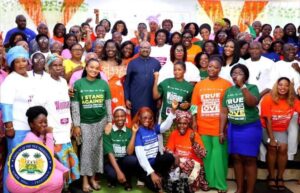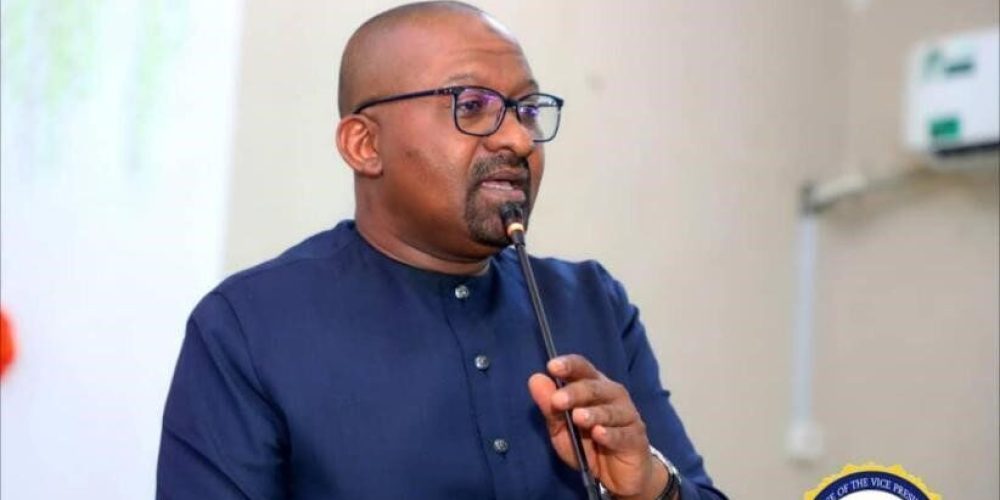
Hon. Vice President Dr. Mohamed Juldeh Jalloh today addressed an audience of government officials, civil society leaders, and international partners, calling for strengthened community-driven initiatives to combat gender-based violence (GBV). Speaking with a focus on achievements and persistent challenges, the Vice President underscored the critical role of local-level interventions in addressing GBV and fostering lasting societal change.
Dr Jalloh highlighted significant strides made since 2018, particularly in healthcare and gender equality. He noted a remarkable reduction in maternal mortality rates, from 1007 deaths per 100,000 live births in 2018 to 448 by 2022, and legislative progress, including the enactment of the Sexual Offenses Act and the Prohibition of Child Marriage Act.
However, the Vice President also emphasised the need for more robust action to tackle the root causes of GBV and ensure survivors receive comprehensive care and justice.
“Despite our progress, the statistics remain troubling. Gender-based violence is still prevalent in our society, particularly in rural areas,” Dr. Jalloh remarked. “Change happens on the ground—where people live, work, and raise families. Communities must own this fight.”
Community Ownership: A Path to Lasting Change
Dr. Jalloh urged a shift from national-level interventions to localised, community-led efforts. He proposed partnerships between government entities and non-governmental organisations to create grassroots structures that empower communities to prevent violence and effectively support survivors.
“When communities are equipped with the tools and resources to combat GBV, we will see real change,” he asserted.
Multi-Sectoral Collaboration and Survivor Support
Minister of Gender and Children’s Affairs Dr Isata Mahoi echoed the Vice President’s call for a comprehensive approach, highlighting the collaborative work between government, civil society, and international partners. She referenced laws such as the Domestic Violence Act and the Gender Equality Act as milestones while stressing the importance of effective implementation.
Dr. Mahoi also celebrated the establishment of One-Stop Centers and the launch of the 116 Helpline to provide immediate assistance to survivors, emphasising these services’ critical role in restoring survivors’ dignity and agency.
Addressing Societal Norms and Harmful Practices
Deputy Minister of Social Welfare Mohamed Hadji Kella spoke on dismantling societal structures that perpetuate GBV. he noted how deeply entrenched male dominance and cultural silence often shield perpetrators from accountability.
“Addressing GBV requires breaking the silence and challenging the culture of complicity that allows such acts to persist,” he stressed.
Call for Cultural Transformation
SEND Sierra Leone Country Director Joseph Ayamga focused on eliminating harmful traditional practices, including female genital mutilation and child marriage. He highlighted education and public awareness as essential tools in reshaping societal attitudes.
“This is not about tradition versus progress; it’s about protecting the dignity and future of every woman, girl, and child in Sierra Leone,” Ayamga emphasised.
A Unified Call to Action
Dr Jalloh concluded the event by reaffirming the government’s commitment to a comprehensive, inclusive strategy to combat GBV.
“The fight against gender-based violence requires all of us—men and women, government, civil society, and the media—to act together. Together, through collective action, we will create a safer, more just Sierra Leone for all,” the Vice President declared.
The conference served as a pivotal moment in Sierra Leone’s continued efforts to eradicate GBV, uniting diverse stakeholders under a shared vision of a society free from violence and discrimination.
Credit: SLENA





